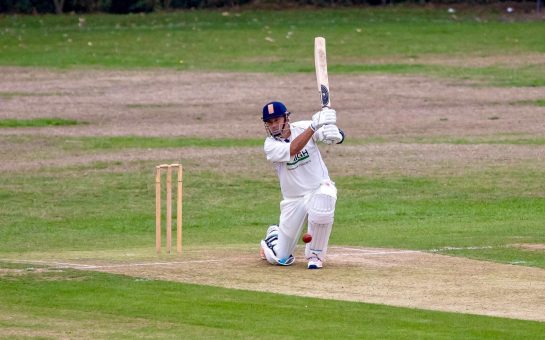Picture the scene: England, still with not the foggiest idea of how to play one-day international cricket, are bundled meekly out of the 2019 World Cup due to be hosted on these shores.
The tournament is a festival of colour and well attended, with fans of every major cricket-playing nation all residing in England. There’s just one problem: the hosts fail to embrace the game.
Not in a Scrooge, Bah Humbug way. After all, the way English crowds watch sports is first rate.
If only England could play as well.
England’s embarrassing 15-run defeat to perennial whipping boys Bangladesh on Monday continued 23 years of misery on cricket’s biggest stage, since England reached the final in 1992.
Since then they have won fewer World Cup matches than Bangladesh against test playing nations and have failed to make it past the group stage in three of the past five tournaments.
After Eoin Morgan took over from Alastair Cook as captain and the side twice beat defending champions India in a pre-World Cup tri-series hopes were lifted. Perhaps this side was coming together just at the right time.
How wrong we were.
Four defeats out of five doesn’t even begin to tell the story of England’s dismal campaign in which their sole victory came against Scotland, who have never won a World Cup match.
In reality England were only in a contest once and that ended in defeat as Bangladesh’s seamers took all ten wickets for only the third time in their ODI history.
Bowling first, Australia cruised to a massive 111 run victory then batting first things got even worse as an inspired Brendon McCullum helped New Zealand chase down a measly 124 in just 12.2 overs.
Even when England finally posted what appeared to be a competitive 309-6 against Sri Lanka, the run chase was more of a procession than a challenge.
It is, as it has been for some time, clear that English cricket needs to change in order to compete at the highest level in one-day cricket.
The current team is not far from being the best XI available to the selectors at present but tactically England are burying themselves before the game has even begun.
Following defeat to Sri Lanka Morgan said he felt his team were 25 runs above par, somewhat puzzling from a captain who had just seen his team swept aside.
Truth be told England begin to slip behind their opposition in the first ten overs of each innings.
At this World Cup the opposition has averaged 70-1 for against England in the first ten overs: in contrast England average 52-1.
Unlike England, New Zealand and Australia, favourites for the World Cup, both take two or more wickets in the first ten overs of the opposition innings.
Add to this England’s continued inability to rotate the strike through the middle of the innings in the manner of Kumar Sangakarra and it is easy to see why they are not winning games.
Even when setting Sri Lanka 310 to win, England scored at less than 4.5 runs per over between overs 11-35.
Sri Lanka who won with nine wickets and 18 balls to spare scored at 6 runs per over in the same period, a 38 run difference.
This means England are putting themselves at a 50 run disadvantage going into the back of a chase, and are giving opposition a head start when defending a target.
Worryingly for England, and Peter Moores’ continued employment in particular, this seems to be England’s upper most limit.
However, the game is evolving and this tournament has already seen three scores in excess of 400 a score far beyond the capacity of this England side.
Moores will likely move on for a second time, the scapegoat for another World Cup that never got off the ground, but the ECB need to take this chance to maker wider change.
The County System:
The two most competitive domestic competitions in the world at the moment are the franchised based Indian Premier League and Australia’s Big Bash.
The competitions attract the world’s biggest names and it is unsurprising that their national teams have benefitted as a result.
Yet, English cricket seems dismayed by the idea of sidestepping the engrained structure of an 18 county tournament.
Adopting a franchise based T20 competition would allow the best players England has to offer the invaluable opportunity to test their skills against international stars.
The captaincy:
Few questioned the decision to drop Alastair Cook and replace him with Eoin Morgan but even fewer noticed that Morgan was being outperformed by Cook.
No one doubts that Morgan is a fine player but a run of four ducks in eight innings and a batting average in the low 20s over the past 18 months is woeful.
Like Cook, Morgan needs to be given the chance to regain his form out of the international spotlight.
The Irishman needs to earn his place in the team as a batsman and not by default as captain.
Kevin Pietersen:
Put simply, England do not possess the depth of talent to do without a man of Pietersen’s considerable cricketing talent.
He is England’s leading runscorer across all formats and, possibly, the only English batsman capable of decimating high class international bowling attacks.
People may say that team unity comes first, but team spirit is helped by success and Pietersen is the man most likely to bring that to this England side.
He is a proven match winner and at 34 could, like Sachin Tendulkar or Jacques Kallis, play another four or five years of international cricket.
Whether or not the ECB are willing to take any of these steps in the coming months remains to be seen but fans will demand improvement, and improvement requires change.
Main image courtesy of Official England Cricket via YouTube, with thanks.



